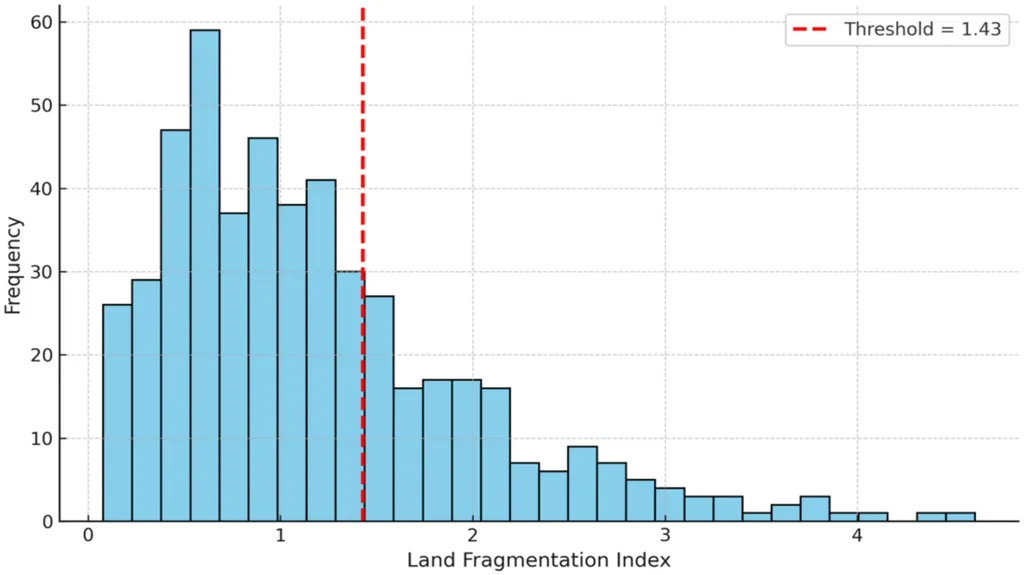In the heart of Balochistan, Pakistan, a pressing challenge threatens the efficiency and sustainability of smallholder farming: land fragmentation. This issue, which reduces farm productivity and hinders the adoption of modern green technologies, has been the subject of a recent study led by Raza Ali Tunio from the School of Management at Xi’an University of Finance and Economics in China. The research, published in *Frontiers in Sustainable Food Systems* (translated as *Frontiers in Sustainable Food Systems*), offers critical insights into how organizational integration can help farmers overcome these obstacles.
Land fragmentation, a common issue in many agricultural regions, occurs when farmland is divided into smaller, often non-contiguous plots. This division makes it difficult for farmers to adopt new technologies, such as precision agriculture tools or renewable energy solutions, which often require larger, consolidated land areas to be economically viable. Tunio’s study, which surveyed 420 crop farmers across four districts in Balochistan, reveals that land fragmentation significantly decreases the likelihood of adopting green technologies. “Fragmented land makes it hard for farmers to invest in new technologies because the scale of their operations is too small to justify the costs,” Tunio explains.
However, the study also highlights a promising solution: organizational integration. By joining farmer cooperatives or other collaborative networks, farmers can pool resources, share knowledge, and collectively adopt green technologies. The research found that organizational integration strongly promotes the adoption of these technologies and can offset the negative effects of land fragmentation. “When farmers work together, they can achieve economies of scale and access resources that would be out of reach for individual smallholders,” Tunio notes.
The findings also underscore the importance of education and training. Farmers who participated in training programs were more likely to adopt green technologies, suggesting that knowledge and skill development are crucial for driving sustainable agricultural practices. Additionally, the study identified several barriers to adoption, including high dependence on agricultural income, land transfer issues, and risk perception.
The implications of this research extend beyond the agricultural sector. As the world seeks to transition to more sustainable energy and food systems, the adoption of green technologies in agriculture will play a pivotal role. By addressing land fragmentation and promoting organizational integration, policymakers and industry leaders can create an environment where sustainable practices thrive. “This research shows that with the right policies and support, farmers can overcome the challenges of land fragmentation and contribute to a more sustainable future,” Tunio concludes.
As the agricultural sector continues to evolve, the insights from this study could shape future developments in sustainable farming practices and energy solutions. By fostering collaboration and investment in green technologies, the agricultural industry can pave the way for a more efficient and sustainable future.

